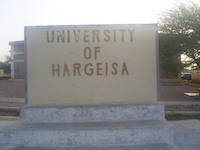E-learning Opens Door to the Global Community: Novice Users’ Experiences of E-learning in a Somali University
E-learning has become one of the primary ways of delivering education around the globe. In Somalia, which is a country torn within and from the global community by a prolonged civil war, University of Hargeisa has in collaboration with Dalarna University in Sweden adopted, for the first time, e-learning. This study explores barriers and facilitators to e-learning usage, experienced by students in Somalia’s higher edu- cation, using the University of Hargeisa as case study. Interviews were conducted with students to explore how University of Hargeisa’s novice users perceived e- learning, and what factors positively and negatively affected their e-learning experiences. The Unified Theory of Acceptance and Use of Technology (UTAUT) model was used as a framework for interpreting the results. The findings show that, in general, the students have a very positive attitude towards e-learning, and they perceived that e-learning enhanced their educational experience. The communication aspect was found to be especially important for Somali students, as it facilitated a feeling of belonging to the global community of students and scholars and alleviated the war-torn country’s isolation. However, some socio-cultural aspects of students’ communities negatively affected their e-learning experience. This study ends with recommendations based on the empirical findings to promote the use and enhance the experience of e-learning in post conflict Somali educational institutions.








